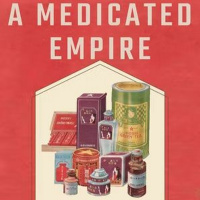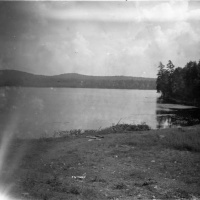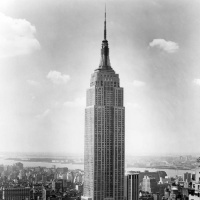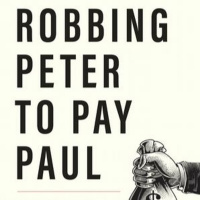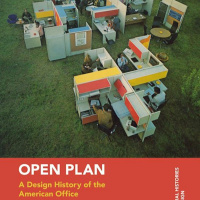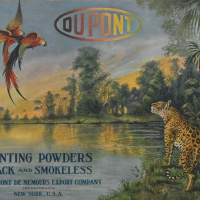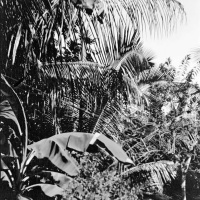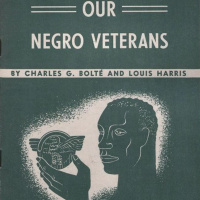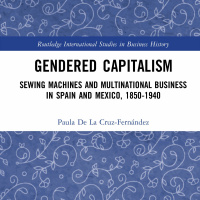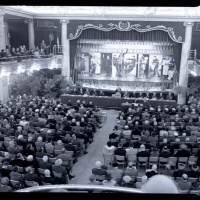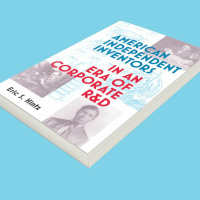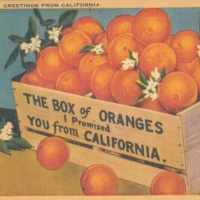Sinopsis
Podcast by Hagley Museum and Library
Episodios
-
A Medicated Empire: The Pharmaceutical Industry & Modern Japan with Timothy Yang
25/07/2022 Duración: 31minIn "A Medicated Empire," Dr. Timothy Yang, associate professor at the University of Georgia, explores the history of Japan's pharmaceutical industry in the early twentieth century through a close account of Hoshi Pharmaceuticals, one of East Asia's most influential drug companies from the late 1910s through the early 1950s. Focusing on Hoshi's connections to Japan's emerging nation-state and empire, and on the ways in which it embraced an ideology of modern medicine as a humanitarian endeavor for greater social good, Yang shows how the industry promoted a hygienic, middle-class culture that was part of Japan's national development and imperial expansion. Yang makes clear that the company's fortunes had less to do with scientific breakthroughs and medical innovations than with Japan's web of social, political, and economic relations. He lays bare Hoshi's business strategies and its connections with politicians and bureaucrats, and he describes how public health authorities dismissed many of its products as pl
-
Technological Change & Work with Ben Schneider
11/07/2022 Duración: 32minWhat happens to jobs when technology changes? How do new technologies change the ways people experience and think about work? Economic historian Ben Schneider, Postdoctoral Fellow at the Work Research Institute at Oslo Metropolitan University, explores these questions and more in his research on technology and work. Taking textile manufacturing and transportation as his case studies, Dr. Schneider developed a novel matrix for analyzing changes in work over time as measured not only quantitatively by wages and hours, but also qualitatively by security, satisfaction, safety, and similar social metrics. This framework allows him to recover and analyze changes in work regimes brought about or otherwise influenced by changes in technology. Dr. Schneider used multiple Hagley Library collections to uncover his story, including materials from our world-class archive of United States railroad companies, like the Pennsylvania Rail Road, the Reading Rail Road, and others. Reading this archive through his framework, Sch
-
The Literary & Ecological History of Lake Hopatcong with Peter Astras
27/06/2022 Duración: 34minHudson Maxim wanted his lake, and he didn’t mind twisting some arms to get it. The early-twentieth-century investor in Lake Hopatcong property wished to make it a destination for well-heeled travelers and pleasure seekers. Making his plans difficult were a cadre of challenges from intransigent executives, to the Morris Canal, to the hydrography of the lake itself. Environmental scholar Peter Astras, PhD candidate at St. Johns University, tells the tale of Lake Hopatcong as an object of desire, development, and indeterminate outcomes. Astras came to the Hagley Library to explore the Hudson Maxim papers, a collection that ranges across the wide array of the man’s business and personal interests. Through careful reading of the archive, he was able to piece together a story that situates the lake in broader context of economic and environmental change. For more Hagley History Hangouts, and more information on the Center for the History of Business, Technology, & Society, visit us on line at www.hagley.org.
-
Born in the USA/Made in the GDR: Western Popular Music & a Communist Record Market with Sven Kube
13/06/2022 Duración: 31minWhat did the Cold War sound like? How did political ideologies shape the differing experiences of musicians and consumers in the capitalist versus the communist world? Did the Iron Curtain muffle the raucous sounds of western popular music? Or were consumers in communist countries able to access capitalist pop? All these questions and more find answers in the work of cultural historian, and 2022 Hagley-NEH Postdoctoral Fellow, Dr. Sven Kube. Blending archival research with oral history and personal experiences, Kube uncovers the fascinating story of a worldwide youth culture of popular music bisected by the geopolitical divisions of the Cold War period. From the 1960s to the 1980s, the grassroots innovation taking place in western popular music could not be replicated in the centrally-planned economies of the east. Nevertheless, eastern consumers, especially in the German Democratic Republic, got their hands (and ears) on novel music and sonic forms emanating from the west. Kube traces these connection throu
-
The Economics of the Empire State Building with Jason Barr
30/05/2022 Duración: 29minThe tallest building of its day opened as the Great Depression really began to squeeze the American economy. Was the Empire State Building a gigantic folly perpetrated by men with sky-scraping egos? Folks in the 1930s thought so, calling the monument the “Empty State Building,” because so little of its space had been rented. Yet, when viewed from the vantage of the twenty-first century through the lens of archival documents, the Empire State Building resolves into an economically and culturally successful investment made by people with enormous fortunes motivated both by egotism and broad vision. Economist Jason Barr, professor at Rutgers University - Newark, dug into the records of John J. Raskob and Pierre Samuel du Pont records held by the Hagley Library to uncover an insider’s story of the Empire State Building. Conceived by Raskob, and backed by du Pont, the project launched in 1929, weeks before the stock market crash, and opened for business in 1931, after a record-setting rapid construction. While th
-
Nature’s Brew: An Environmental History of American Brewing with Cody Patton
16/05/2022 Duración: 30minHow many species had a hand in making that glass of beer? From the perspective of environmental history, human artefacts like beer result from more-than-human collaboration across time. Barley plants, hop vines, single-cell organisms, and a multiplicity of humans work together to bring beer into existence, and react to changes in the meteorological and economic climates. Taking these interactions seriously allows us to better understand the history of American brewing, and its implications for the future of business in an era of climate change. Environmental historian Cody Patton, PhD candidate at Ohio State University, is uncovering this history in his dissertation project. Using multiple Hagley Library collections, including our unrivaled collection of trade journals and an oral history of craft brewing, Patton traces the many connections between environmental and economic factors in American history, as mediated by the brewing and consumption of beer. Scientific knowledge, industrial practice, professiona
-
Robbing Peter to Pay Paul with Samuel Milner
02/05/2022 Duración: 43minConcentrated market power and the weakened sway of corporate stakeholders over management have emerged as leading concerns of American political economy. In his book, Robbing Peter to Pay Paul: Power, Profits, and Productivity in Modern America, Samuel Milner provides a historical context for contemporary efforts to resolve these anxieties by examining the contest to control the distribution of corporate income during the mid‑twentieth century. During this “Golden Age of American Capitalism,” apprehension about the debilitating consequences of industrial concentration fueled efforts to ensure that management would share the fruits of progress with workers, consumers, and society as a whole. Focusing on wage and price determination in steel, automobiles, and electrical equipment, Milner reveals how the management of concentrated industries understood its ability to distribute income to its stakeholders as well as why economists, courts, and public policymakers struggled to curtail the exercise of that market p
-
Tax the Rich: Teachers’ Fight to Fund Public Schools with Kelly Goodman
18/04/2022 Duración: 19minTax the Rich: Teachers’ Fight to Fund Public Schools with Kelly Goodman Education is among the largest public expenditures in the United States. How is school funding determined, and by whom? Between 1930 and 1980, teachers organized with allies to create new streams of funding to support public education, while their opponents counter-organized to reduce the ability of state governments to collect taxes and fund public services. By the end of the era, anti-tax interests have gained the ascendant, divided the pro-tax coalition, and put teachers on their back heel. Kelly Goodman, adjunct professor at West Chester University, uncovers this tale as it unfolded in California and Michigan with innovative archival research and original analysis. Using the National Association of Manufacturers and the United States Chamber of Commerce collections held at the Hagley Library, Dr. Goodman did real detective work to piece together the reaction against progressive taxation organized by business interests. The pro-busi
-
“People of Some Talent & So Much Virtue”: Forgotten Lives of du Pont Women with Kelsey McNiff
04/04/2022 Duración: 29minSilence speaks volumes. Especially silences in historical memory, which reflect the values of a society as it chooses what and whom to remember. The du Pont family’s arrival in the United States is a well-worn tale of visionary men; what about the women of the family, their lives, perspectives, and contributions? The low profile of du Pont women in historical memory compared to that of their male counterparts reflects not a lack of sources or evidence (there is plenty of both), but a choice by researchers, writers, and historians to emphasize certain aspects of the story, and to forget other parts deemed less significant. Kelsey McNiff, associate professor of English at Endicott College, addresses this discrepancy in her original research on the lives of du Pont family women. Supported by an exploratory grant from the Center for the History of Business, Technology, & Society, Dr. McNiff dug into the rich collections of du Pont family archives held by the Hagley Library. These sources added a wealth of eviden
-
Open Plan: A Design History of the American Office with Jennifer Kaufmann-Buhler
21/03/2022 Duración: 49minImagine an office without walls or hierarchies, a space that allows for the free and open exchange of ideas and a way to work… better. How would one implement this? More importantly, what happens when design ideals collide with workplace reality? Jennifer Kaufmann-Buhler’s new book, Open Plan: A Design History of the American Office answers these questions. Kauffman-Buhler traces the evolution of the brightly colored officescapes of the 1960s and 1970s to the cubicles of the 1980s and 1990s and analyzes these changing office spaces as design concepts promoted by architects, designers, and furniture makers, and as work space used by organizations and their employees. Jennifer Kaufmann-Buhler is an Assistant Professor at the Rueff School of Design, Art, and Performance at Purdue University in West Lafayette, Indiana. Her research focuses on the interactions and intersections of people, space, and things in everyday life. To support her work, Dr. Kaufmann-Buhler received research funding from the Center for t
-
Industrial Semiotics: United States Visual Culture, 1880s to the 1950s with Derek Vouri-Richard
07/03/2022 Duración: 30minTwenty-first-century Americans are saturated with visual imagery and punchy messages authored by large organizations. This was not always so. Techniques for standardized mass communication developed in the late nineteenth century, such as photography, inexpensive printing, “magic lanterns,” and motion pictures, offered organization leaders unprecedented means to create shared understandings of facts and symbols across large groups of people. The study of the process by which symbolic meanings are promulgated through social groups is called semiotics, and the period between the 1880s and the 1950s offers the semiotician a rich study of dramatic change. Derek Vouri-Richard, a PhD candidate in American Studies at the College of William & Mary, came to the Hagley Library to research the semiotics of corporate communications. He dug into multiple collections and discovered the development of a distinctive vocabulary of visual images paired with clear and concise text that characterized the corporate semiotics of
-
The Not So Inexhaustible Sea: Fisheries Science & Management with Aaron Van Neste
21/02/2022 Duración: 28minHow many fish can people catch before we exhaust the supply? Fisheries managers have deployed the language and techniques of science since the mid-nineteenth century in an intergenerational attempt to find out. Their efforts were part of a longer debate over whether the seas are an inexhaustible resource for human exploitation, or whether there are practical limits to the sustainability of marine resource extraction. Scientists developed models of fish reproduction, and theories of ecological stability, that inform the approach taken by regulators toward fishery management. Yet, as scientific understanding has evolved over two centuries, public regulation and popular understanding of fishing industries has lagged behind. Historian of science Aaron Van Neste suggests that the application of scientific understandings to fisheries management has had unintended consequences for marine ecology, and for the economic sustainability of the industry. The scientific perspective on fisheries has changed from a beginnin
-
Oil Palm: A Global History with Jonathan Robins
07/02/2022 Duración: 39minOil palms are ubiquitous - grown in nearly every tropical country, they supply the world with more edible fat than any other plant and play a role in scores of packaged products, from lipstick and soap to margarine and cookies. And as Jonathan E. Robins shows, sweeping social transformations carried the plant around the planet. First brought to the global stage in the holds of slave ships, palm oil became a quintessential commodity in the Industrial Revolution. Imperialists hungry for cheap fat subjugated Africa’s oil palm landscapes and the people who worked them. In the twentieth century, the World Bank promulgated oil palm agriculture as a panacea to rural development in Southeast Asia and across the tropics. As plantation companies tore into rainforests, evicting farmers in the name of progress, the oil palm continued its rise to dominance, sparking new controversies over trade, land and labor rights, human health, and the environment. By telling the story of the oil palm across multiple centuries and co
-
Home & Hell: Sundown Towns & the Great Migration in Appalachia with Matthew O’Neal
24/01/2022 Duración: 24minMillions of black Americans left the Deep South fleeing violence and seeking opportunity during the Great Migration, one of the most dramatic demographic shifts in twentieth-century American history. Some communities welcomed these newcomers with open arms, going so far as to actively recruit them as industrial labor, while others attempted to shut their doors, to maintain their homogeneity through the threat of violence against black people. These different reactions could take place in towns adjacent to one another, with locally-specific causes shaping the divergence. Social historian Matthew O’Neal, PhD candidate at the University of Georgia, uncovers the story of two eastern-Kentucky towns that reacted differently to the Great Migration: Lynch, a U.S. Steel company town which became a relatively diverse, welcoming community, and Corbin, a railroad hub that became an infamous “sundown town,” or place unsafe for black people to live in or visit. The economic base of wither town, and the resulting social o
-
Gendered Capitalism: Sewing Machines & Business in Mexico & Spain with Paula de la Cruz-Fernandez
27/12/2021 Duración: 01h56sPaula A. de la Cruz-Fernández’s book Gendered Capitalism: Sewing Machines and Multinational Business in Spain and Mexico, 1850–1940 explores how the gender-specific cultures of sewing and embroidery shaped the US Singer Sewing Machine Company’s operations. Using the cases of Spain and Mexico, Fernandez details how the cultural, everyday realm of female use of sewing machines for family or business purposes influenced corporate organization and marketing strategy. In those places local agents, both men and women, developed and expanded Singer’s selling system such that this American-based multinational company assumed a domestic guise because of its focus on the private sphere of the home. In this way Fernandez genders the corporation, especially the intersection between feminine domesticity, commerce, and corporate strategy. Paula A. de la Cruz-Fernández is the Digital Editor of the Business History Conference and Digital Heritage Manager at the University of Florida. She received her Ph D in history from
-
The Shareholder Value Revolution with Sean Delehanty
13/12/2021 Duración: 29minWhat is the purpose of an American corporation? Is it to serve as an integral organ of society, generating plural benefits for owners, workers, communities, and the general public alike? Or is it strictly to generate monetary benefit for its owners? During the twentieth century, the dominant model of the American corporation shifted from the former to the latter. This so-called shareholder value revolution had profound consequences for American political economy and society. Historian Sean Delehanty, PhD candidate at the Johns Hopkins University, uncovers the multiple dimensions of this story as it unfolded between the 1960s and 1990s. Using the U.S. Chamber of Commerce and National Association of Manufacturers collections, Delehanty traces how abstract theories created by academic economists connected with the predations of corporate raiders and the self-interested activism of portfolio managers to yield stunning changes to the American corporate landscape. This “revolution” has had profound consequences f
-
Ruman Nation: An Environmental History of American Cattle with Nicole Welk-Joerger
29/11/2021 Duración: 40minAmericans love cows. The United States possesses an entire economic sector geared for rearing, feeding, slaughtering, shipping, and eating the big-eyed ruminants. So all-encompassing is the American cattle-industrial complex that it helps determine what crops are grown on what land, what is done with the waste materials from chemical and food processing, the composition of soils, the purity of air and water, and the health effects of eating your dinner. How has the American love of cows come to shape our world so profoundly? Historian and anthropologist Nicole Welk-Joerger seeks answers in her research on cattle and sustainability in the United States. Taking a dual approach that involves ethnographic fieldwork and historical research in the archive, Dr. Welk-Joerger traces the growth of the livestock feed industry from its beginnings in the late nineteenth century, to its dominance of the economic scene in the early twenty-first century. Key to this history is the changing ideas Americans had about their ca
-
American Independent Inventors In An Era of Corporate R&D with Eric Hintz
15/11/2021 Duración: 44minDid the American independent inventor ever go extinct? In his new book, American Independent Inventors In An Era of Corporate R&D, Eric S. Hintz argues that they persisted despite the development of corporate R&D during the twentieth century. In his new book Hintz explores the relationship between independent inventors and corporate R&D departments. While corporate R&D departments did eventually supplant independent inventors in terms of annual patents per year, independent inventors never faded away. Corporate R&D labs often benefited from larger budgets, and stronger political connections than independent inventors. Still, this relationship wasn’t strictly adversarial, often times corporate labs found themselves working with independent inventors, whether by licensing their patents or bringing them on as temporary consultants. For more Hagley History Hangouts, and more information about the Center for the History of Business, Technology, & Society at the Hagley Museum & Library, visit www.hagley.org.
-
Unpeeling the Orange Empire: Citrus & Art in the Archive with Suzy Kopf
01/11/2021 Duración: 39minHow did citrus fruit come to carry its particular meaning in American consumer culture? Visual artist Suzy Kopf, instructor at the Maryland Institute College of Art, visited the Hagley Library to research citrus companies’ efforts to sell their products to Americans. What she found was a much deeper story of how changing technologies, markets, and popular culture made citrus, and its semitropical cousin avocado, into a beacon of sunshine, fun, and desirability. Supported by an exploratory grant from the Center for the History of Business, Technology, & Society, Kopf dug into a variety of collections to uncover the untold stories of American citrus in the twentieth century. From produce marketing photographs, to real estate and vacation pamphlets, to instructional booklets for citrus growers and grocery store operators, Kopf found a wealth of materials in the Hagley archives to inform and inspire her artwork in multiple media. Images referred to in this interview can be found at www.hagley.org/research/his
-
Time-Bombing the Future: Plastics In & Around Us with Rebecca Altman
18/10/2021 Duración: 28minHagley Center program officer Gregory Hargreaves interviews Dr. Rebecca Altman about her research into the intimate history of synthetic materials, industrial chemistry, & the human body. Altman, an environmental sociologist, has made extensive use of the Hagley Library’s vast collection of digitized materials available worldwide at digital.hagley.org. Cattle drinking from a creek near the Ohio River ingest PFAS and become unwitting agents for the circulation of synthetic materials through the natural world. The legacies of industrial chemistry lace together society and the environment, making synthetic materials such as plastic an ideal location to study the historical relationship that exists between social and natural forces. Altman combines research from across archives to piece together a story of chemical legacies within and all around us. For more Hagley History Hangouts, and to learn more about the Center for the History of Business, Technology, & Society, visit us online at hagley.org.

